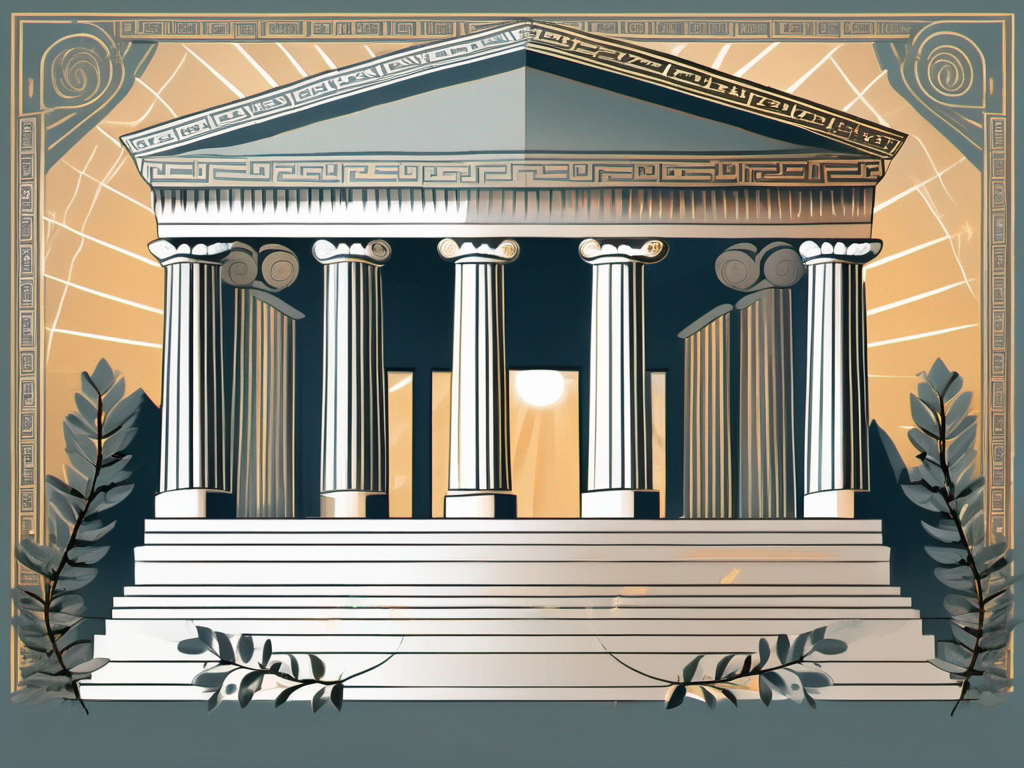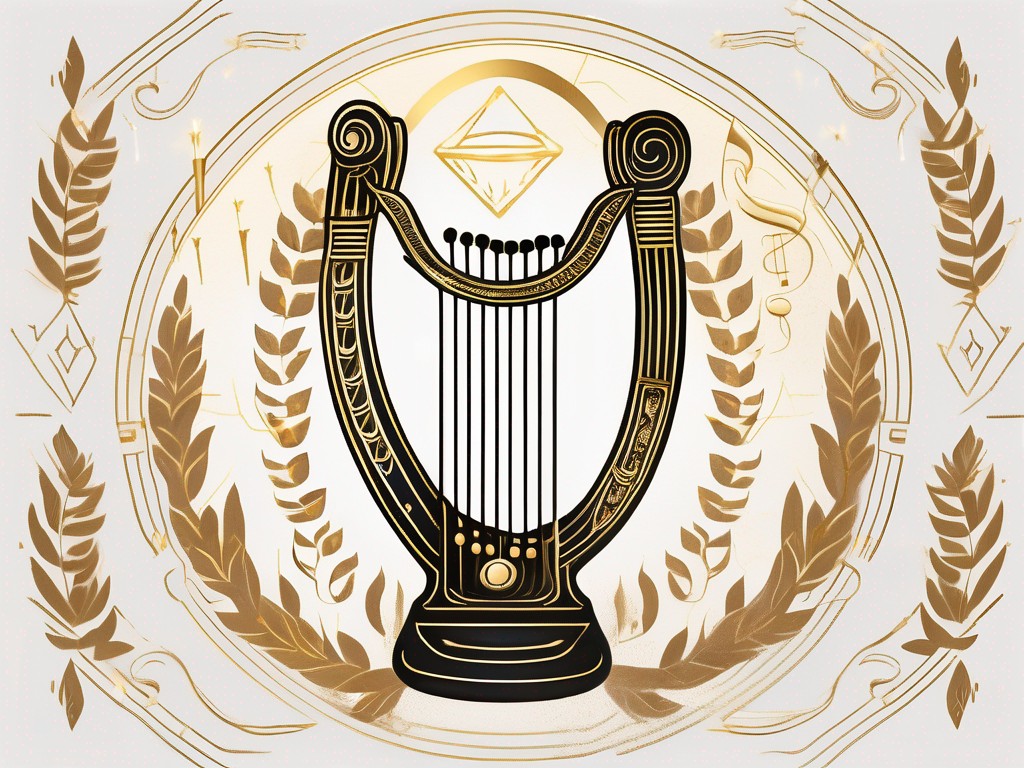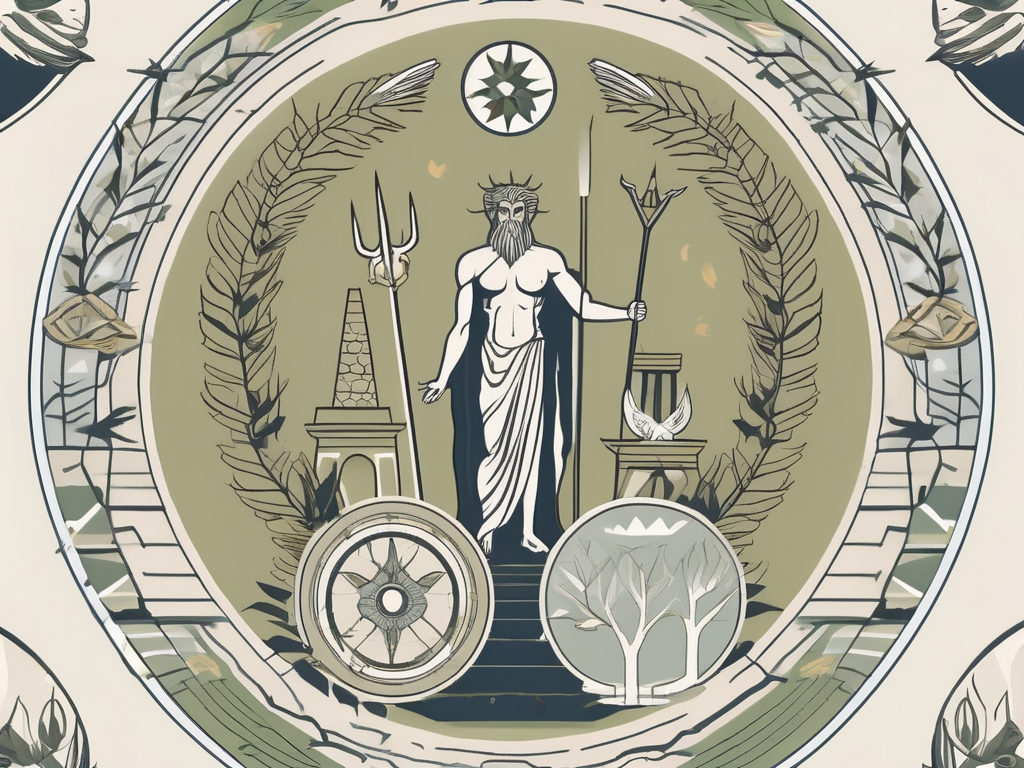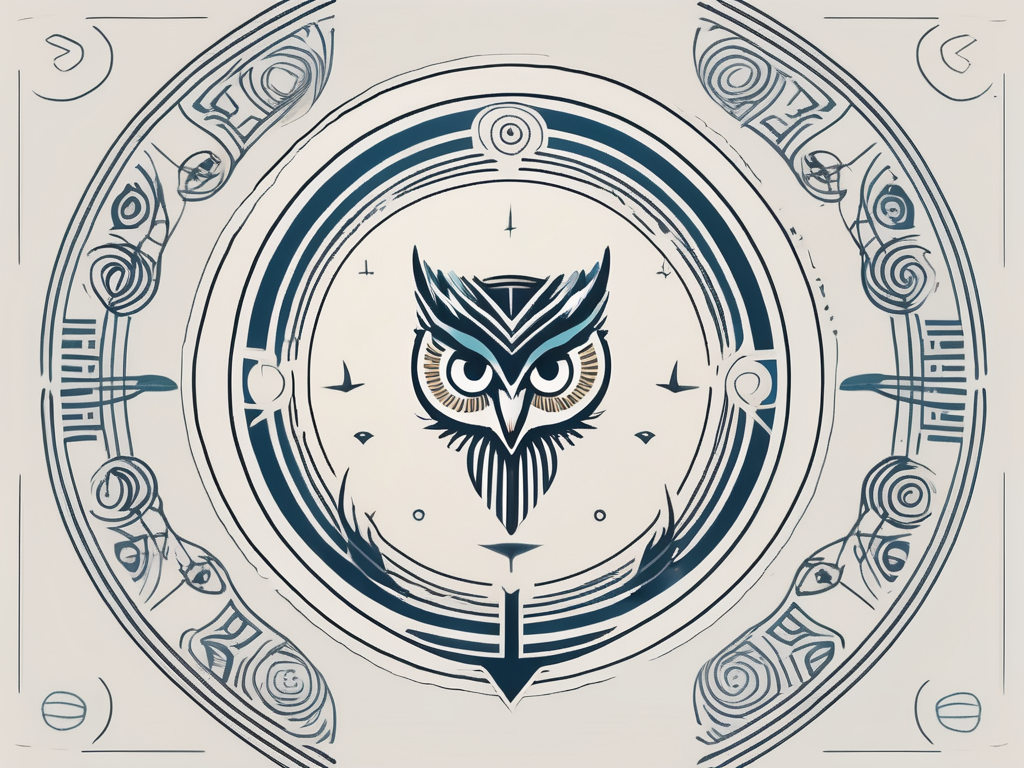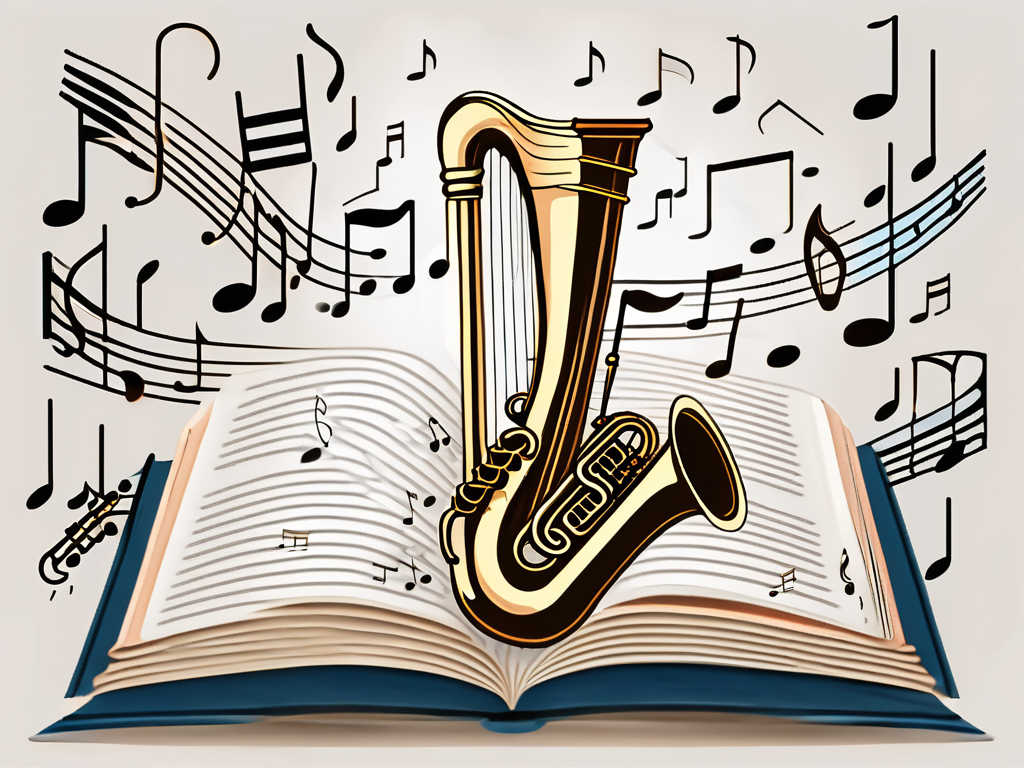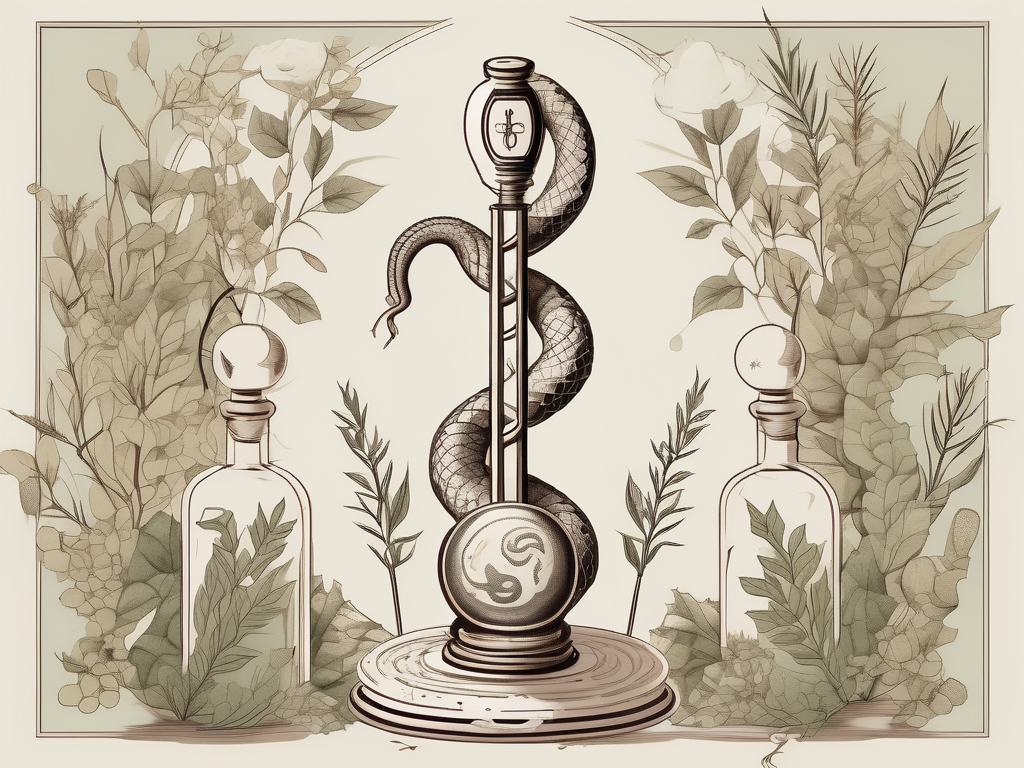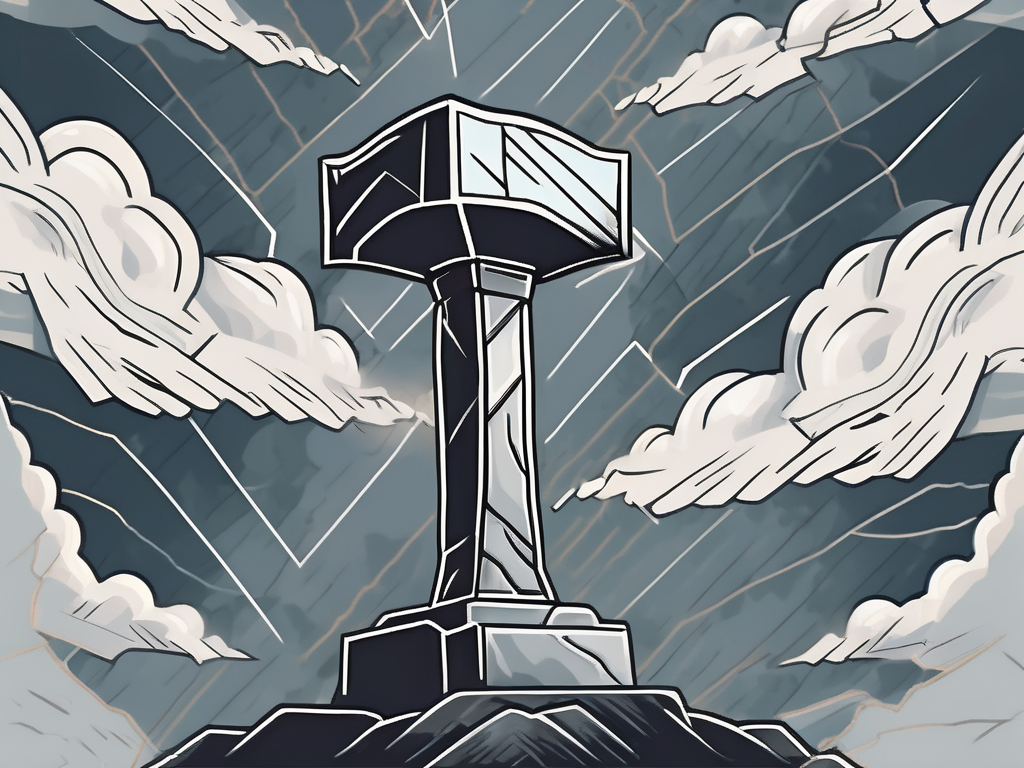Greek mythology is filled with fascinating deities, each with their own unique stories and meanings. One such deity is Paean, a god with a rich history and profound significance in Greek culture. In this article, we will delve into the myth of Paean, examine his symbolism, explore his cultural impact, uncover the rituals and worship associated with him, and touch on his literary references.
Understanding the Myth of Paean
Paean is not as well-known as some other Greek gods, but his story is worth exploring. According to ancient texts, Paean was the son of Apollo, the god of music and healing. Born on the island of Delos, Paean was gifted with extraordinary musical talent and a deep understanding of the healing arts.
Legend has it that when Paean was faced with a dangerous situation, he invoked his father Apollo for help. In response to his prayers, Apollo transformed him into a god, granting him immortality. From that moment on, Paean became the symbol of healing and was revered by the ancient Greeks for his ability to cure ailments through music and medicine.
The Origin of Paean
The exact origin of Paean’s myth is difficult to trace, but he is believed to have emerged during the Hellenistic period, around the 4th century BCE. His roots can be found in ancient Greek literature and art, where he was often depicted as a youthful figure adorned with laurel leaves, holding a lyre or a healing staff.
Paean’s prominence grew over time as his healing powers became widely recognized. He became an object of reverence and worship, with temples dedicated to him in various cities across Greece.
One of the most famous temples dedicated to Paean was located in Epidaurus. This sanctuary, known as the Sanctuary of Asclepius, was a center for healing and pilgrimage. People from all over Greece would travel to Epidaurus seeking Paean’s divine intervention in their ailments.
The Sanctuary of Asclepius was not only a place of physical healing but also served as a refuge for those seeking solace and emotional well-being. The tranquil surroundings, filled with the soothing sounds of nature and the music of Paean’s lyre, provided a sanctuary for troubled souls.
Paean’s Role in Greek Mythology
As the son of Apollo, Paean inherited many of his father’s attributes. He was considered the god of healing, embodying the power to bring relief to those suffering from physical and mental afflictions. Paean was often called upon by individuals seeking a cure for their ailments, and his music and medicine were believed to possess magical properties.
Paean’s healing abilities extended beyond physical illnesses. It was believed that his music had the power to soothe troubled souls and bring comfort to those facing emotional distress. His role as a healer, both physical and emotional, made him a beloved and revered figure in Greek society.
Paean’s influence was not limited to the mortal realm. In Greek mythology, he was often depicted as a companion of the gods, using his healing powers to aid them in times of need. His presence was seen as a source of comfort and protection, ensuring the well-being of both gods and mortals alike.
Despite his relatively lesser-known status compared to other Greek gods, Paean’s legacy as a healer and musician lives on. His story serves as a reminder of the power of music and medicine to bring healing and solace to those in need.
The Symbolism of Paean
Paean’s symbolism goes beyond his healing abilities. He represents the harmony between music and medicine, two disciplines that were deeply intertwined in ancient Greek culture. The Greeks believed that music had the power to heal not only the body but also the soul. Paean embodied this belief, personifying the connection between sound, rhythm, and therapeutic practices.
Paean as a Symbol of Healing
Paean’s association with healing is rooted in the belief that music has the ability to restore balance and promote well-being. The ancient Greeks believed that certain melodies and rhythms had specific healing properties, and Paean was the embodiment of this belief.
His role as the god of healing extended to guiding physicians and acting as a patron god for those in medical professions. Paean’s influence on medicine and healing practices cannot be overstated, as his myth laid the foundation for the integration of music and medicine in ancient Greek society.
The Musical Influence of Paean
Music played a significant role in Greek culture, and Paean’s connection to Apollo further emphasized its importance. Paean’s association with music expanded beyond healing, with ancient Greeks believing that his music brought joy, inspiration, and a sense of unity.
As the god of music, Paean inspired poets, musicians, and artists, leaving a lasting impact on ancient Greek literature and art. His melodies and harmonies were believed to elevate the soul and connect humanity with the divine, creating a profound spiritual experience.
The Cultural Impact of Paean
Paean’s influence extended far beyond his healing and musical abilities. His presence in Greek society had a profound impact on various aspects of their culture, leaving an indelible mark that can still be felt today.
Paean’s Influence on Greek Society
Paean’s role as a healer and musician made him an integral part of Greek society. His presence was felt not only in temples dedicated to him but also in everyday life. The ancient Greeks turned to Paean in times of illness, seeking his intercession and guidance.
Moreover, Paean’s myth fueled the growth of medical practices and the development of music as a healing art form. Physicians sought to incorporate music into their treatments, recognizing the power of sound in the healing process. This integration of music and medicine can still be seen in certain alternative healing practices today.
Paean’s Presence in Modern Culture
While Paean may not be as widely worshipped today as he was in ancient Greece, his legacy lives on in various ways. His story and symbolism have found their way into modern literature, art, and music, keeping his memory alive.
Paean has been mentioned in countless literary works, where his healing powers and musical talents are celebrated. Artists and musicians have drawn inspiration from his story, incorporating elements of his myth into their creations.
The Worship and Rituals of Paean
Ancient Greece was a land of temples and sacred rituals, and Paean had his own devoted worshippers. Let’s explore the practices and traditions associated with the veneration of Paean.
Ancient Practices and Traditions
Worship of Paean often involved offerings and sacrifices made at his temples. These offerings could range from simple gifts of gratitude to elaborate rituals performed by priests and worshippers alike. It was believed that by honoring Paean, individuals could gain his favor and receive his blessings.
The rituals also included music and dance, as these were considered integral to Paean’s sphere of influence. The music played during these ceremonies was believed to invoke the healing powers of Paean, creating an immersive experience for those participating.
Temples and Sacred Sites of Paean
There were several temples dedicated to Paean throughout ancient Greece. These sacred sites served as places of worship and pilgrimage for those seeking healing and guidance. The most famous of these temples was the Temple of Paean located in Delos, the birthplace of both Apollo and Paean.
These temples were adorned with beautiful sculptures and artworks, depicting Paean in various forms. They stood as testaments to the veneration of Paean and the belief in his healing powers.
The Literary References to Paean
Paean’s myth and significance can be found throughout ancient Greek literature. Let’s explore his presence in these literary works and discover how he continues to influence modern literature and art.
Paean in Ancient Greek Literature
Paean’s presence in ancient Greek literature can be traced back to works such as Homer’s “Odyssey” and Hesiod’s “Theogony.” In these texts, Paean is often mentioned alongside Apollo and other deities, showcasing his importance and the reverence he commanded.
Furthermore, ancient Greek playwrights such as Euripides and Aristophanes incorporated Paean into their works, highlighting his healing powers and musical talents. Paean’s character served as a source of inspiration for these playwrights, allowing them to explore themes of music, healing, and spirituality.
Paean in Modern Literature and Art
Paean’s influence continues to be evident in modern literature and art. His myth and symbolism have found their way into various works, both in fiction and non-fiction. Authors and artists have been inspired by his story, using it as a metaphor for healing, creativity, and self-discovery.
Moreover, Paean’s musical connection has inspired composers and musicians, who often compose pieces that pay homage to him. His myth has transcended time, resonating with individuals who appreciate the power of music and its ability to heal and uplift the human spirit.
A Lasting Legacy
Paean may not be as well-known as some other Greek gods, but his significance cannot be understated. His story and symbolism continue to inspire and captivate, weaving their way into the fabric of Greek culture and beyond. From his myth as the son of Apollo to his role as a healer and musician, Paean remains a powerful symbol of harmony, healing, and the profound influence of music in our lives.
So, the next time you find solace in a soothing melody or seek comfort in the healing touch of music, remember the mythical Paean, and let his legacy guide your journey towards wellness and harmony.
